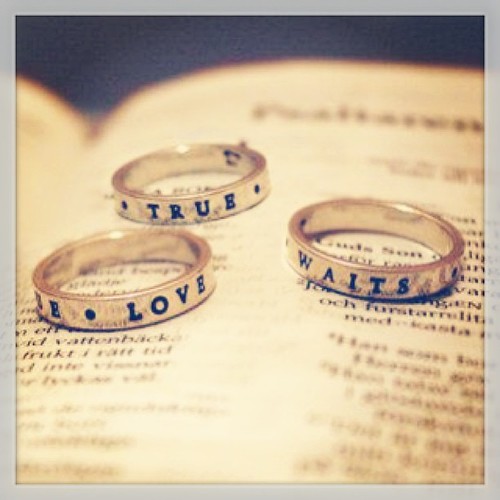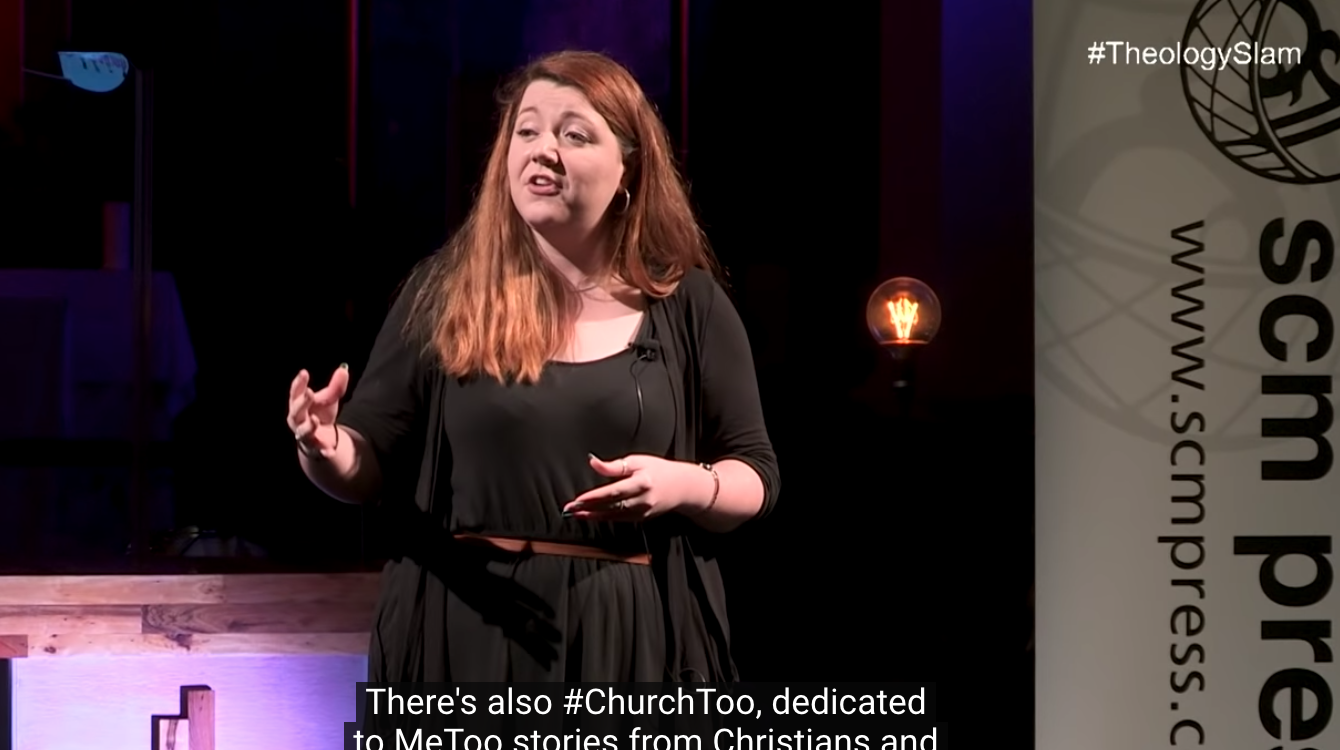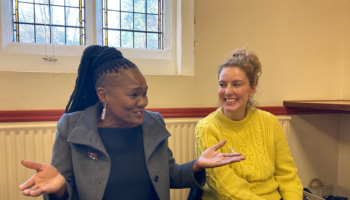Today’s post is from Hannah Baylor. Hannah Baylor is a PhD student in theology and Christian ethics at Oxford researching sexual consent and a Church of England ordinand. You can hear more about Hannah’s work here: Theology Slam: Hannah Barr on Theology and the #MeToo movement – YouTube
When people find out that I research sexual consent, it usually elicits three responses:
Ooo, that’s so important! (I think so!)
Have you seen that brilliant cup of tea video? (That cup of tea video is terrible; here is my ten-points reason why…)
Or, they tell me their story. It is an absolute privilege to be trusted with stories that have often never been told aloud; it’s a gift which I treasure.
Being immersed in a topic consisting of painful stories, abuses of power, damaging rhetoric, and continual threats to human flourishing, is often all-consuming and it can be hard to switch off from that. But recent events have had me questioning whether it is right to want to switch off, or whether vigilance is a habit to cultivate.
I recently began to do some research into purity culture in the UK. My initial thoughts were that purity culture wasn’t such a big deal over here, compared with the US with its sub-culture of daddy-daughter balls and abstinence-only education in schools. But as people shared their stories, my illusions were shattered. I discovered friends who had signed purity pledges and wore purity rings and people who had done the True Love Waits and Pure courses. So many people had devoured I Kissed Dating Goodbye; a Coptic friend said her church had really pushed that book on its young people. Purity culture in the UK is not just for evangelicals. The more I learned, the more people shared their stories, the more I realised that purity culture makes its mark on impressionable young Christians here in the UK.[1]

And then my memories returned. The sermons where ‘promiscuous’ girls were compared with chewing gum and un-sticky Sellotape. The unhelpful notions I had about dating that I’d acquired through osmosis. The church leader who shamed me over my body and called me a stumbling block. The email I had drafted to my rector, saying I couldn’t continue to help with the youth work, because the youth leader owned and taught from The Collected Works of Soul-Destroying Purity Culture and I didn’t have the power to challenge him but I wasn’t going to collude with him either in teaching harmful ideas. And finally, the memory of a throwaway line someone said to me at theological college, which I’d disregarded at the time, but then realised it was solid gold purity culture.
Purity culture in the US signals its presence. Bells, whistles, gaudy merchandise, political fanfare – you can’t miss it! In the UK, however, purity culture has a far more insidious character. It doesn’t necessarily announce its arrival; it seeps into church teaching through more obscure ways. What I recognise as particularly damaging from my own teenage Christian experiences is when legitimate Christian teaching and purity culture ideals were taught together, making harmful ideas harder to notice and reject. This is why I was so alarmed when I realised how casually and innocuously lines from the purity culture script were spoken by those who would otherwise absolutely reject its premise.
I’m training to be a Church of England priest. I will shortly be in possession of an awkward combination of power and authority: the power of ordination as an office, the power that other people confer upon a person in a dog collar and in a pulpit, the not-really-real power that is being a curate at the bottom of the Church of England hierarchy, and the power that the Holy Spirit gifts in her wisdom. And one of the many terrifying things about that power is the potential to cause pain. The last thing I want to do with my power as a soon-to-be ordained person is to say or teach something, which is not only wrong but is abjectly harmful.
I spoke to a variety of Church of England ordinands and curates who had been raised on purity culture. Some continue to identify as evangelicals, albeit often with a long list of caveats; others have eschewed it. I asked them about the interplay between their experiences of purity culture and the power they now have as ordained, or soon-to-be ordained, ministers. There was a uniform reluctance to preach on sexual ethics generally, and often this was to do with wanting to avoid saying the wrong thing and causing someone pain and shame. Another common reflection was how narrow purity culture’s focus is, obsessing over abstinence until marriage, and how this meant the vastness of issues of dating and inter-personal relationships was overlooked. Certainly, I find myself in the corner of every church debate about sexual ethics, shouting into the void that it would be nice if sexual consent got a look in, you know, for the sake of human flourishing and all that.
One person I spoke to said what they lamented about purity culture was it presented everything as black and white; as an ethical system, it’s an attractive one, because it sets up a dichotomy between right and wrong and then unstintingly upholds it. As an ethicist, I am naturally wary of ethical systems, which present themselves as catch-all solutions. I think such systems force us to abdicate our responsibility in the ethical life and leave those with the most power unaccountable for how they wield it. Purity culture is concerned with rendering its adherents powerless and its enforcers absorbing all of the power.
People shared their stories with me, and it was, as ever, a gift to be trusted with them.
And what no-one wanted was to cause anybody any harm.

For people like myself who grew up with purity culture spooned into our Christian diet in ways we were not always cognisant of, untangling our sexual ethics is an on-going process. I have spoken elsewhere about the need for power literacy, particularly for those of us inhabiting roles replete with multifaceted power; this is a skill that we must never be complacent about.
Power isn’t static, but this doesn’t mean that it is necessarily unstable; in fact, the opposite is true, the more static power is, the more unstable it is. We must remain vigilant to the potency of our power and when it is accumulating, and allow ourselves to be challenged on it and to dismantle it. It also requires awareness of the things we don’t condone but which may still have shaped us, and critically interrogate our stances on certain issues to ensure that we are not perpetuating a cycle of harm and shame.
I didn’t relish being proved wrong about the prevalence of purity culture in the UK. It has been uncomfortable to reckon with my own experiences of it and to realise that I and many of my friends are not as unscathed by it as we might have originally thought. But the awareness that it has raised within me at a point where I am on the cusp of receiving a significant amount of power, is invaluable.
So, here’s to kissing purity culture goodbye and power literacy hello.
[1] I highly recommend Vicky Walker’s book Relatable: Exploring God, Love, and Connection in the Age of Choice (Malcolm Down Publishing, 2019) for empirical studies with Christians in the UK and their experiences of purity culture.






